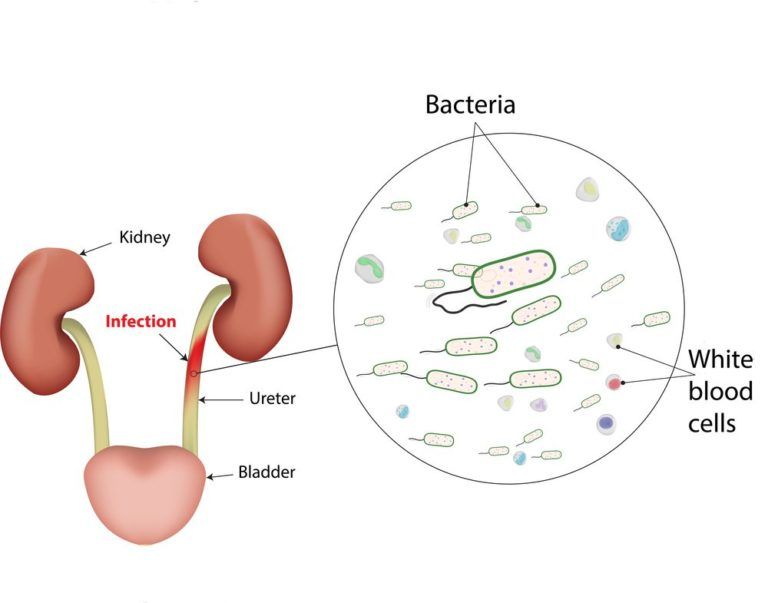Urinary Tract Infections

A urinary tract infection, or UTI, is an infection of any part of the urinary tract, such as the urethra, bladder, ureters, or kidneys. UTIs usually begin in the lower regions of the urinary tract, which are susceptible to bacterial contamination. It is important to seek treatment for a UTI, as untreated UTIs can spread, causing potential kidney damage and in rare cases, death.
Did you know…
that urinary tract infections account for 1 percent of all outpatient doctor visits every year? These infections occur in people of all ages, but sexually active women are at the highest risk for UTI. In fact, women in general are much more likely to contract a urinary tract infection at the rate of 4 women to every 1 man. Other risk factors for UTI include the use of catheters or having diabetes.
Frequently Asked Questions
How do I know if I have a urinary tract infection?
A urinary tract infection is identified by changes to urinary function. Symptoms usually present as pain or burning during urination, a strong urge to urinate, urine that is cloudy in appearance, and sometimes blood in the urine. As a UTI progresses to affect other areas of the urinary tract such as the kidneys, it may induce fever, chills, nausea, and flank pain. See your urologist if you are experiencing any of these symptoms. A doctor can diagnose a UTI with a simple urine test.
What types of treatments are available to people with urinary tract infections?
Treating a urinary tract infection is usually as simple as prescribing an antibiotic and drinking plenty of fluids. Most symptoms clear up after just a few days of antibiotics. However, infections that have progressed or that are severe may require hospitalization.
Is there anything I can do to prevent a UTI in the future?
You can prevent future urinary tract infections by drinking plenty of water each day to help dilute your urine and encourage more frequent urination. Women can further protect themselves from UTI by wiping in a front to back motion after elimination. Urination after intercourse in sexually active women can also help prevent infection.

